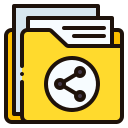Harden Your Devices and Apps
Turn on automatic updates for operating systems, browsers, and fintech apps. Uninstall old finance tools you no longer need to shrink the attack surface. Fewer apps mean fewer vulnerabilities and fewer permissions to worry about.
Harden Your Devices and Apps
Grant only necessary permissions to financial apps, especially contacts, location, and notifications. Use device biometrics for convenience, but keep a strong device passcode. If an app requests unusual access, ask why or decline and contact support.
Harden Your Devices and Apps
Avoid public Wi-Fi for transactions; tether or use a trusted network. If a VPN is needed, choose a reputable, audited provider rather than a free option. Secure DNS and firewall settings add extra layers against sneaky redirects.
Harden Your Devices and Apps
Lorem ipsum dolor sit amet, consectetur adipiscing elit. Ut elit tellus, luctus nec ullamcorper mattis, pulvinar dapibus leo.




